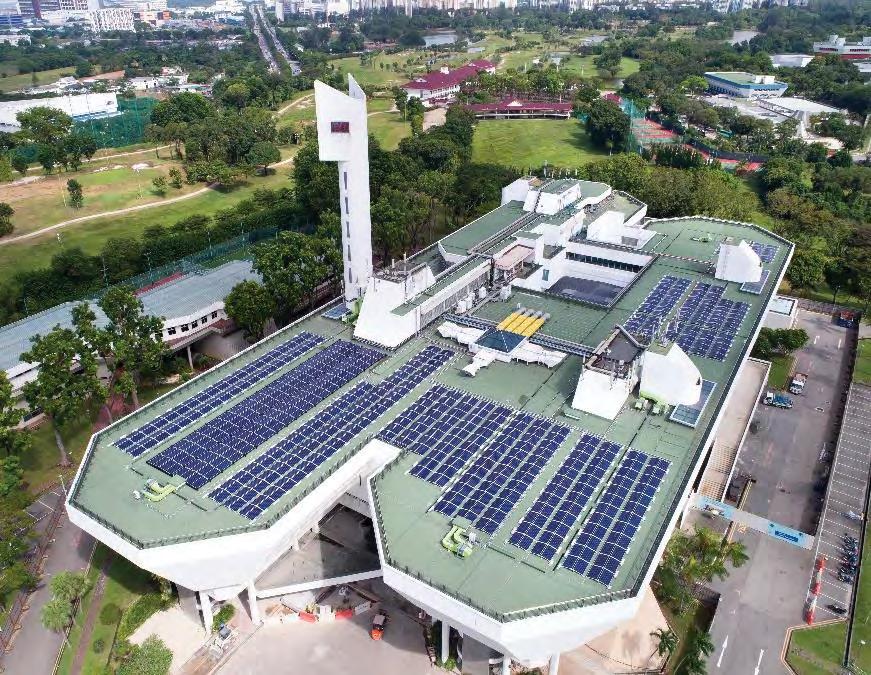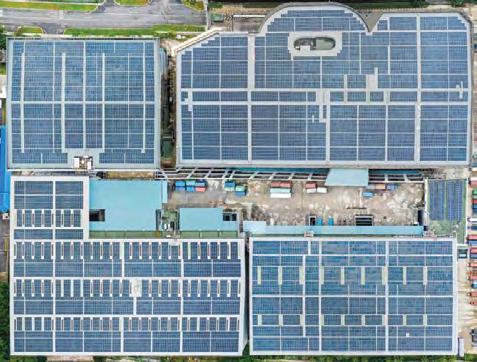
4 minute read
Singapore meets its 2020 solar deployment target It was achieved in the first quarter of this year
SINGAPORE MEETS ITS 2020 SOLAR DEPLOYMENT TARGET
It was achieved in the first quarter of this year.
Solar energy is one of the key switches in Singapore’s Energy Story in which we co-create a cleaner, affordable and more reliable energy future. With climate change, how we produce and use energy will see shifts as well. The government and industry are working closely to deploy cleaner energy solutions such as solar energy. The solar installation that helped cross the 350 MWp target is a 6 MWp rooftop solar installation at an industrial facility at 40 Penjuru Lane, a CapitaLand industrial property held under Ascendas Real Estate Investment Trust. The solar panels were installed and operated by Sembcorp Industries. This partnership between CapitaLand and Sembcorp Industries allowed the industrial facility to reduce its carbon footprint, and the excess electricity generated is sold on the wholesale electricity market. CapitaLand is also on Sembcorp’s newly launched renewable energy certification (REC) aggregator platform and will use the RECs to power its corporate offices and properties with 100% renewable energy. Sembcorp Industries has partnered CapitaLand Group to install and operate rooftop solar farms at six properties owned by CapitaLand’s business space and industrial real estate investment trust, Ascendas Real Estate Investment Trust. The installation formed the largest combined rooftop solar facility in Singapore by a real estate investment trust. 40 Penjuru Lane is one of the properties under this partnership. Mr Ngiam Shih Chun, Chief Executive of Energy Market Authority said, “In our efforts towards greater sustainability to tackle climate change, Singapore will increase solar adoption, as solar is our most viable source of renewable energy. With strong support from stakeholders, such as the commercial and industrial companies, we have successfully met the 350 MWp solar target this year. We will press on towards the next solar target of at least 2 GWp by 2030 and will continue to work with our stakeholders to make this possible”. Set in 2010, the 350 MWp target for 2020 is equivalent to powering about 60,000 households for a year. The next target, of at least 2 gigawatt-peak (GWp) of solar deployment by 2030, is equivalent to powering about 350,000 households for a year. Aligned with its ambition to make industrial estates more environment-friendly to support businesses, JTC will be rolling out extensions for two of its solar initiatives, namely the next phases of the SolarLand programme and the SolarRoof programme, to optimise the use of over 740,000 m 2 of industrial land and roof space, equivalent to about 103 soccer fields. Estimated to contribute over 82 MWp of solar energy capacity towards the 2030 national target, it will generate about 78,000 MWh to power over 14,600 households and reduce over 32,000 tonnes of carbon emissions per year.
Following the roll out of the first two phases at Jurong Island and Changi Business Park, JTC issued a tender for the third phase of its SolarLand programme in February this year. This will maximise the use of over 560,000 m 2 of temporary vacant land all across Singapore to deploy more than 67 MWp of solar energy capacity. The system is made modular and flexible by using mobile PV panels and hybrid SPPG substations, and can be redeployed when the land is needed for other uses.
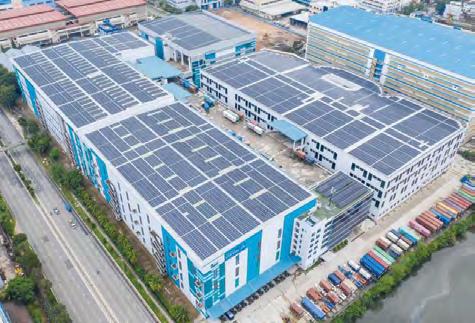
To better use industrial roof space, JTC will be issuing a tender in the first half of 2020 for the second phase of its SolarRoof programme to create an additional 15 MWp of solar energy capacity. Launched in 2016, the SolarRoof model enables the direct export of solar electricity generated from rooftops to the national power grid. Besides its industrial buildings, JTC is also exploring the feasibility of allowing its lessees to tap on the new contract for solar panel installations on their own rooftops. This aims to further catalyse the adoption of solar deployment across Singapore’s industrial estates. “Solar energy is one of the most promising renewable energy sources for Singapore. As the lead agency for industrial development, JTC is partnering the industry and customers to make our development more sustainable. Our SolarLand and SolarRoof programmes aim to overcome some of the constraints faced by the local solar market, such as space constraints and high capital costs. Through these efforts, we hope to reduce the carbon footprint and optimise the use of industrial land and roof spaces by installing solar panels to contribute clean energy to Singapore”, said JTC’s Group Director of Engineering, Calvin Chung.
SolarLand installation on Jurong Island. Image: JTC.
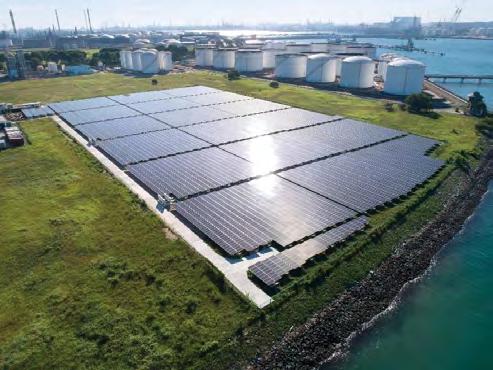
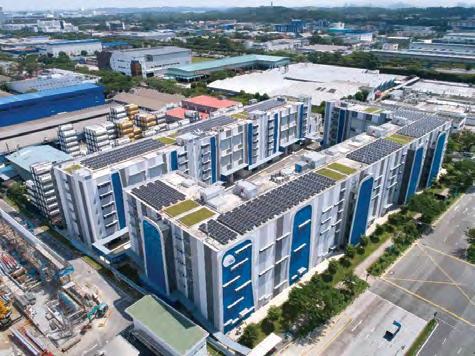
SolarRoof installation on JTC Space @ Gul. Image: JTC.
